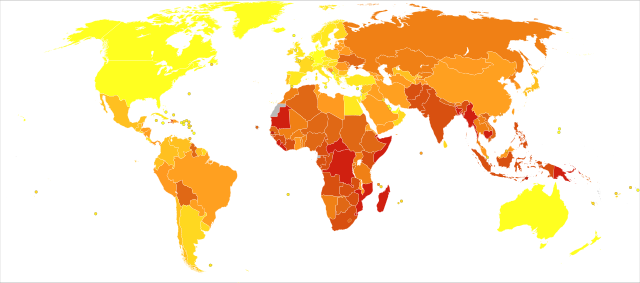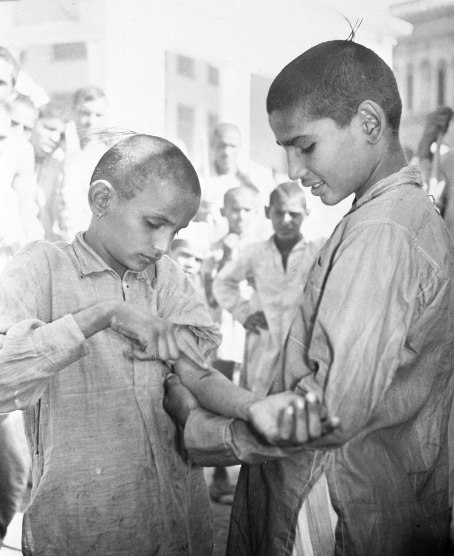Tuberculosis is back as the deadliest infectious disease

The World Health Organization has reported that tuberculosis (TB) is back at the number one spot as the deadliest infectious disease in 2023: 1.25 million people worldwide died of TB. It replaced COVID-19, which topped the rankings in recent years.
FSE Science Newsroom | Text René Fransen, image editor Leoni von Ristok
Several scientists at the Faculty of Science and Engineering have done research on TB. Professor of Organic Chemistry Adri Minnaard has been researching TB for fifteen years, contributing in various ways to the search for a more effective vaccine and more robust diagnostics. He builds pieces of the tuberculosis bacteria, which are freely available to anyone who wants to work on developing a vaccine or a better diagnostic tool.


TB vaccine
Together with several international collaborators, Minnaard has been working on a better way of testing for TB. Read more about this in the article Fifteen years of building molecules to fight tuberculosis: towards accessible testing for low-income countries.
In collaboration with Prof. Branch Moody (Harvard University) and Dr Ildiko van Rhijn (Utrecht University), Minnaard has also worked on a TB vaccine, for which they received the €1.6 million Ammodo Science Award for groundbreaking research.
In 2023, Minnaard and his colleagues created a ‘lipidomic map’ of the tuberculosis bacterium, offering insights into immunology. This information can be used for the development of vaccines or anti-microbial treatments for tuberculosis.
In the lab of UG Nobel Prize winner Ben Feringa, Jeffrey Buter used a ‘Lego brick’ approach to build light-activated molecules that could attack the TB bacterium. His work is featured in an episode of the Noorderlab podcast that is produced by Science LinX, the science centre of the Faculty of Science and Engineering at the University of Groningen.
| Last modified: | 04 December 2024 10.49 a.m. |
More news
-
03 April 2025
IMChip and MimeCure in top 10 of the national Academic Startup Competition
Prof. Tamalika Banerjee’s startup IMChip and Prof. Erik Frijlink and Dr. Luke van der Koog’s startup MimeCure have made it into the top 10 of the national Academic Startup Competition.
-
01 April 2025
NSC’s electoral reform plan may have unwanted consequences
The new voting system, proposed by minister Uitermark, could jeopardize the fundamental principle of proportional representation, says Davide Grossi, Professor of Collective Decision Making and Computation at the University of Groningen
-
01 April 2025
'Diversity leads to better science'
In addition to her biological research on ageing, Hannah Dugdale also studies disparities relating to diversity in science. Thanks to the latter, she is one of the two 2024 laureates of the Athena Award, an NWO prize for successful and inspiring...
